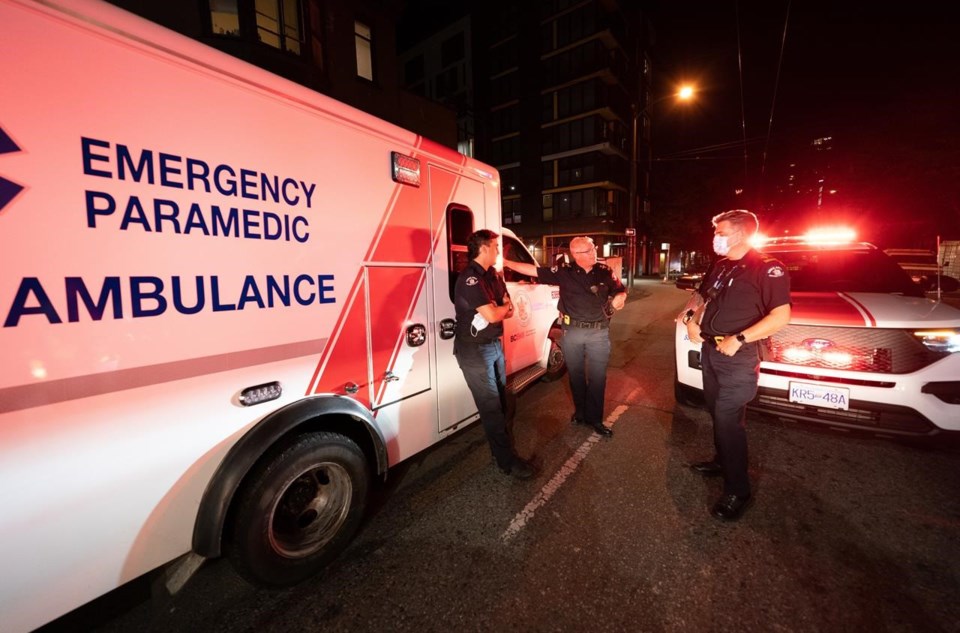VANCOUVER — Paramedics and medical dispatchers in B.C. responded to a record-setting 35,525 overdose calls in 2021.
BC Emergency Health Services says paramedics attended an average of 97 overdose calls a day last year, a 31 per cent increase compared with 2020.
The agency said in a report released Wednesday that overdose calls have steadily increased since 2015, and every health region in the province reported a rise in the volume of overdose calls last year.
The report said the areas covered by the Fraser and Vancouver Coastal health authorities, where half of the province's population lives, recorded the most calls at 11,204 and 10,573, respectively.
Surrey saw the largest percentage increase among the province's biggest cities with a nearly 50 per cent jump to 3,674. Vancouver had the most calls for overdoses with 9,993 last year, a 23 per cent increase from 2020.
Troy Clifford, president of the Ambulance Paramedics of B.C., said in an interview Thursday that the union knew the numbers were rising but it hadn't realized the extent of the increase until the report was released.
"We knew the numbers were going up because (paramedics) see it on every shift," he said. "It takes a toll on them. The numbers of our members off and in treatment because of psychological injuries is incredible, and the opioid epidemic is definitely a significant part of that."
He said staffing shortages have been a problem for years, but the union has been working closely with the government to fill the gaps.
In July, the provincial government said it was overhauling the ambulance service to reduce wait times after numerous complaints about long delays during medical emergencies. It also announced in December it would be adding 85 full-time paramedics, 65 dispatchers and 22 new ambulances.
"We need more recruiting to combat the shortages. We also need to have additional resources, more ambulances and more dispatchers because the evidence is showing us we have not met the national benchmark for answering calls," said Clifford.
The union is also calling for more mental health and addiction resources for the general public to relieve some of the pressure on first responders, Clifford added.
"You can't always just default to calling an ambulance," he said. "If it's not the best care (option) for those patients, then we need to find the right routes and have those supports available in the community."
The Coroners Service has said illicit drug overdoses are the leading cause of unnatural deaths in the province, with about six people dying each day.
This report by The Canadian Press was first published Jan. 13, 2022.
—
This story was produced with the financial assistance of the Facebook and Canadian Press News Fellowship.
Brieanna Charlebois, The Canadian Press



